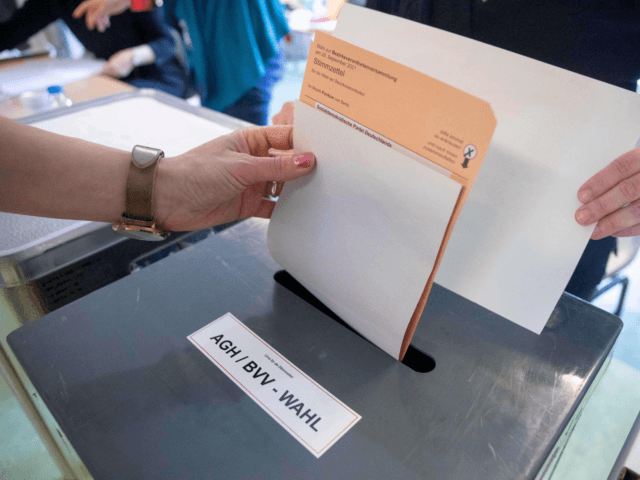Berlin’s Constitutional Court announced that it will be reviewing last month’s election results amid widespread reports of “irregularities”.
On September 26th, the German capital held elections at the federal, state, and local council levels.
Now, Berlin’s state Constitutional Court will need to decide if elections will need to be redone in two districts of the city, the western Charlottenburg-Wilmersdorf district and the eastern Marzahn-Hellersdorf district.
Berliners were forced to wait for hours at polling stations that ran out of ballot papers, with the Berlin marathon causing delays in bringing more ballots. Many voters reported receiving the wrong type of ballots, and it is claimed that loopholes allowed minors to vote, according to state broadcaster Deutsche Welle.
Lolita Cigane, the head of the Organization for Security and Co-operation (OSCE) in Europe’s election-monitoring team, said that approximately ten per cent of polling centres in the city experienced voting irregularities, or 207 out of 2,257 stations.
Berlin Election Commissioner Petra Michaelis, who resigned last month following the polling day chaos, said that violations of election regulations could have impacted the results of the state election.
While in other countries close results trigger an automatic recount, in Germany they have to be formally initiated by a court.
At present, the state election results put the Social Democrats in first place, with the Greens and the Christian Democrats in second and third, respectively.
The chairman of the Bundestag election review committee, Patrick Sensburg of the Christian Democrats, has called for the entire election to be held again, saying: “In the Berlin election for the House of Representatives, I see objective violations of the electoral law.”
There has been no indication that the irregularities in Berlin could overturn the federal election to replace Angela Merkel’s party as Germany’s leading political force.
In the September elections, Merkel’s Christian Democratic Union (CDU) suffered a humiliating loss under the leadership of Armin Laschet to the Social Democrat Party (SPD), which secured 25.7 per cent of the vote compared to 24.1 per cent for the CDU.
The left-wing party did not secure enough of the vote share to win power outright despite the CDU having its worst-ever result, however, forcing leader Olaf Sholz into negotiations with the Greens and the pro-business Free Democrats (FDP).
On Friday, the heads of the three parties met to discuss forming a so-called “traffic light” coalition government, so named because the parties’ colours are red, green, and yellow.
“We are convinced that we can conclude an ambitious and viable coalition agreement,” they said.
It is likely that a new federal government will take weeks or even months to form and it is still possible for Merkel’s party to cling on to power if it convinces the Greens and the FDP to form a coalition with them over the SPD, even without election reruns.
Follow Kurt Zindulka on Twitter here @KurtZindulka

COMMENTS
Please let us know if you're having issues with commenting.